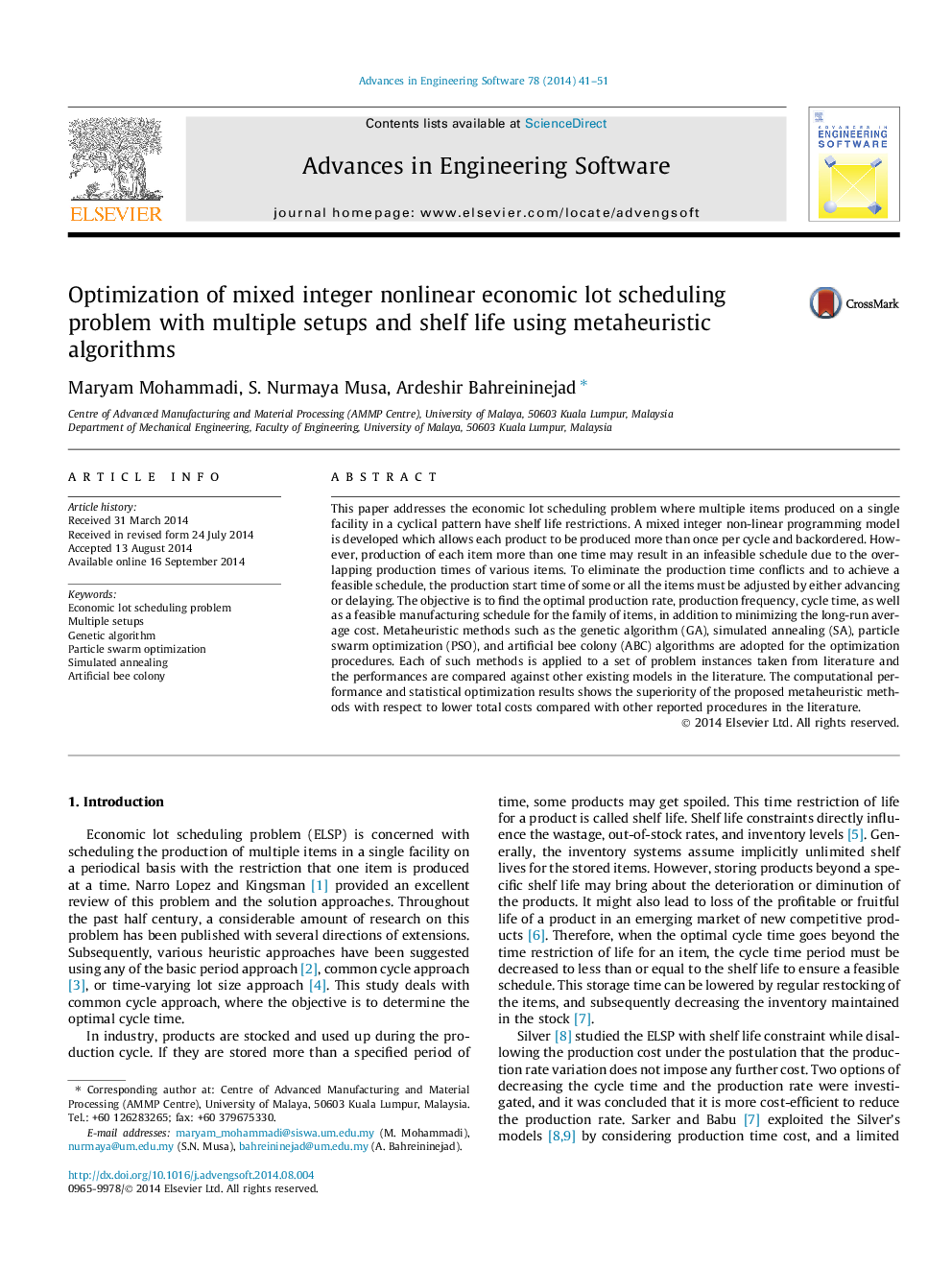| Article ID | Journal | Published Year | Pages | File Type |
|---|---|---|---|---|
| 568297 | Advances in Engineering Software | 2014 | 11 Pages |
•Optimization of the economic lot scheduling problem (ELSP).•The ELSP considers multiple setups, shelf life, and backordering for any product.•Four metaheuristic methods GA, SA, PSO, and ABC were used to solve the problem.•The metaheuristic methods outperformed other reported procedures in the literature.•Allowing for the production of each item more than once yielded a lower total cost.
This paper addresses the economic lot scheduling problem where multiple items produced on a single facility in a cyclical pattern have shelf life restrictions. A mixed integer non-linear programming model is developed which allows each product to be produced more than once per cycle and backordered. However, production of each item more than one time may result in an infeasible schedule due to the overlapping production times of various items. To eliminate the production time conflicts and to achieve a feasible schedule, the production start time of some or all the items must be adjusted by either advancing or delaying. The objective is to find the optimal production rate, production frequency, cycle time, as well as a feasible manufacturing schedule for the family of items, in addition to minimizing the long-run average cost. Metaheuristic methods such as the genetic algorithm (GA), simulated annealing (SA), particle swarm optimization (PSO), and artificial bee colony (ABC) algorithms are adopted for the optimization procedures. Each of such methods is applied to a set of problem instances taken from literature and the performances are compared against other existing models in the literature. The computational performance and statistical optimization results shows the superiority of the proposed metaheuristic methods with respect to lower total costs compared with other reported procedures in the literature.
